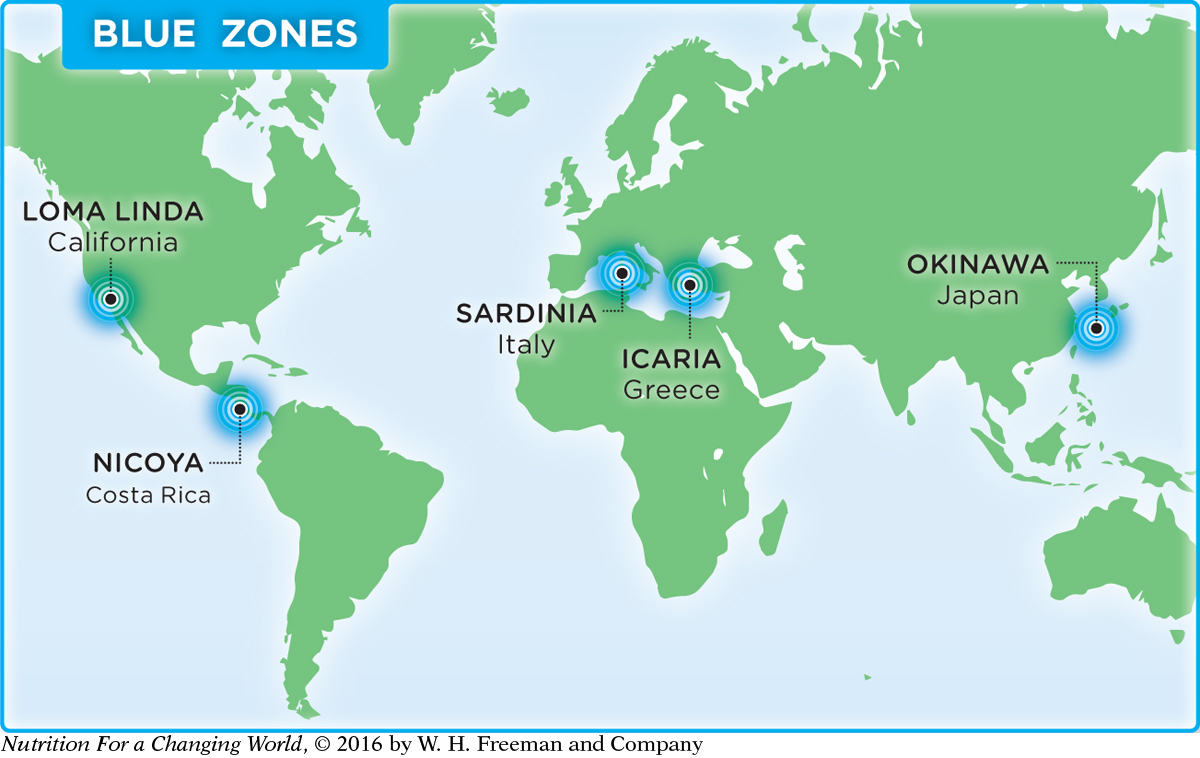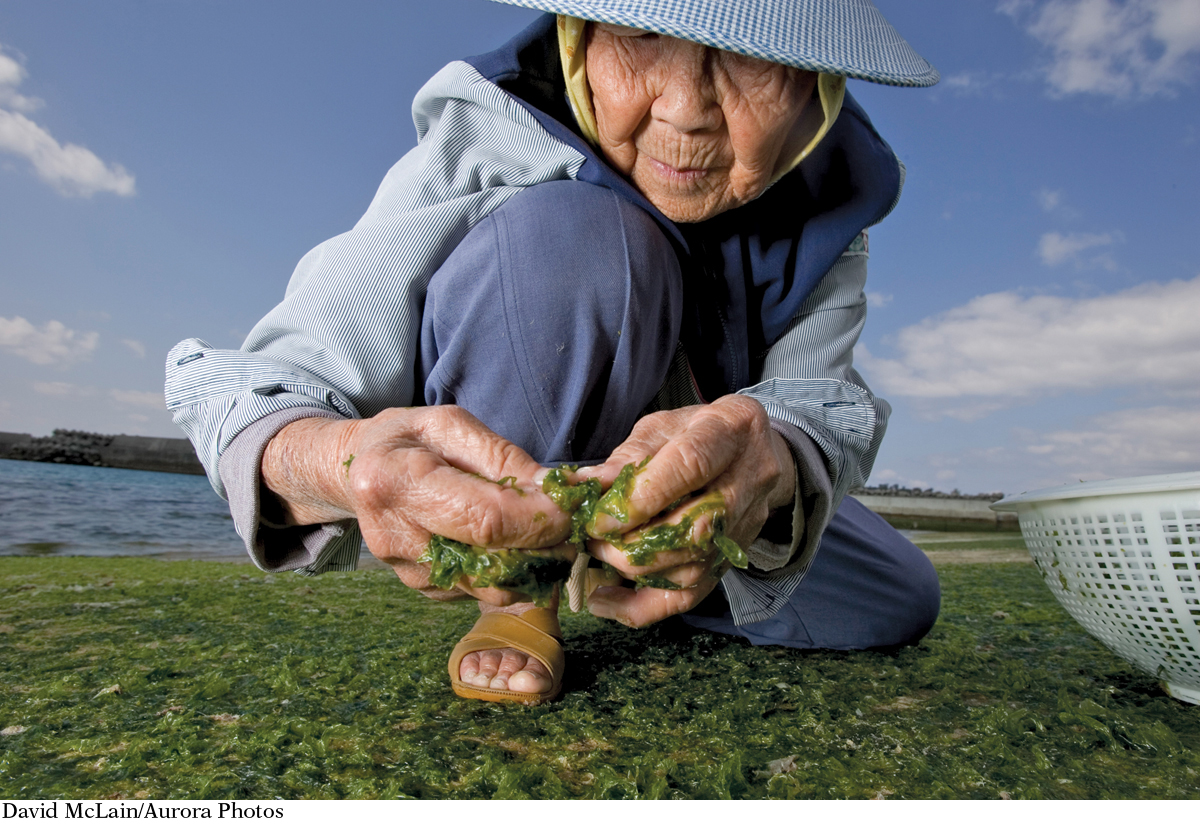BLUE ZONES
Let’s return to the question of whether there are ways in which humans can increase their longevity through behavioral measures. The answer is yes. Support comes from the study of areas on our planet where humans experience increased longevity. Known as “Blue Zones,” these are areas with a higher than average number of individuals who live to be at least 100 years old. Blue Zones have been identified in parts of Japan, Italy, Canada, and Costa Rica.
Among the best studied of the so-called Blue Zones is the Seventh-day Adventist community. The Adventists are a conservative sect of Protestant Christianity that goes back to the 1860s. They believe in living according to Biblical principles and observe a day of rest (the Sabbath) on Saturday. Although not exactly a “zone,” since they live all over the world (with a large population in California), this group shares a common way of living, born of their religious beliefs, that links them together. And according to researchers, they are among the longest-living populations on the planet, if not the longest.
“We found that Adventists were getting, on average, more than seven years of extra life expectancy, for men, and about four and a half years for women as compared to other Californians,” says Gary Fraser, a cardiologist and epidemiologist at Loma Linda Medical School, who has studied the Adventists. “The magnitude of that difference surprised me because it’s quite major.”

What’s behind this allotment of extra years? Fraser’s group has identified several key behaviors and lifestyle choices that they believe give Adventists their propensity for longer lifespans. It turns out that Adventists do (and don’t do) a whole bunch of things that improve their life expectancy—some obvious, some less so. For instance, they don’t smoke. They also rarely drink alcohol. Since both smoking and excessive drinking are associated with a range of diseases, it’s not surprising that refraining from these things improves health and increases longevity. Many Adventists are also vegetarians or vegans (refer to Chapter 9 for more on plant-based diets), they emphasize fresh, minimally processed foods, and they tend to regularly consume nuts. These food choices, too, affect health, as we will see.

Through lifestyle choices, this group of people has experienced a big boost in longevity. And if Adventists can do it, researchers say, then so can the rest of us.
The concept of a Blue Zone comes from a 2004 study of especially long-lived individuals in the mountainous region of Sardinia, an island off the coast of Italy. Researchers began circling progressively narrower areas on a map where longevity seemed to be highest, until a (blue) zone of maximum longevity was reached. The Blue Zone concept was popularized by journalist Dan Buettner, in his book The Blue Zones: 9 Lessons for Living Longer from the People Who’ve Lived the Longest. Buettner traveled to far-flung regions of the world with the goal of identifying the common factors that contribute to these astounding feats of longevity.
Many of the so-called Blue Zones are isolated island or mountain communities, such as the archipelago of Okinawa in Japan and the highlands of Sardinia in Italy, where age-old customs remain intact and where migration into and out of the area is rare.
The Adventist community, by contrast, is not found in a geographically restricted area, but that turns out to be a plus for longevity researchers. Unlike the other Blue Zones, where the geographic isolation of gene pools might imply a genetic reason for increased longevity, the Adventists are linked only by behavior. They therefore provide one of the best populations in which to explore the controllable factors, such as nutrition, that may influence longevity.

The first studies of the Adventists were conducted in the 1950s, and even back then it was clear that Adventists tended to live longer than their non-Adventist neighbors. But it has only been in the past decade that scientists have begun to unravel the specific behavioral and lifestyle factors that are behind their longer lives.